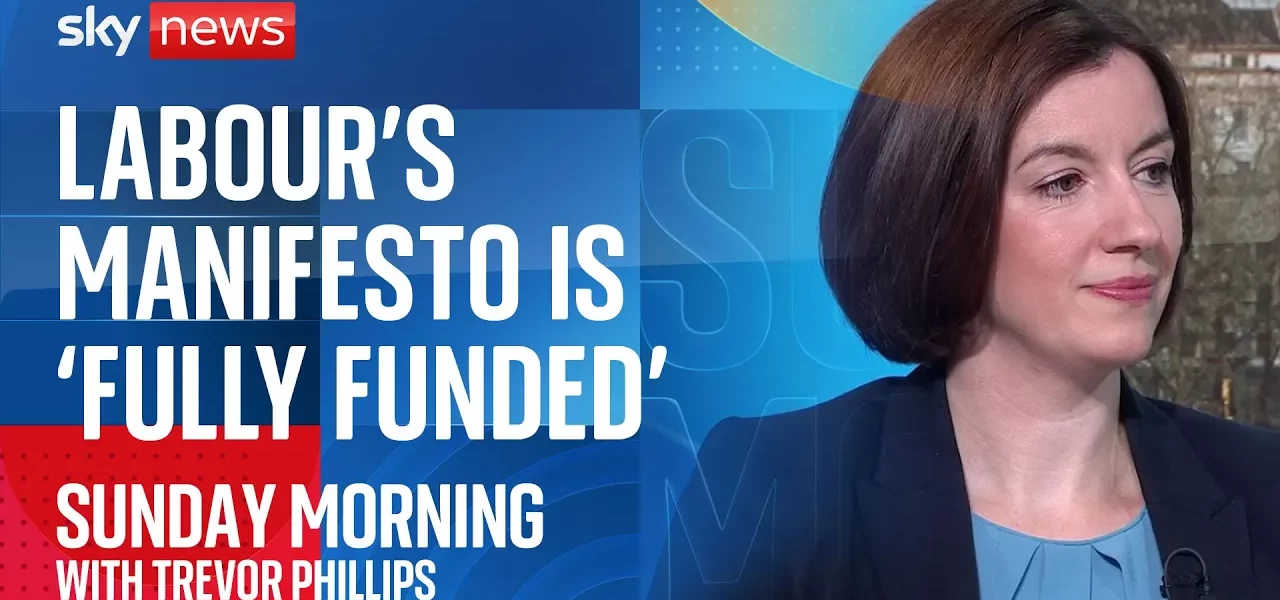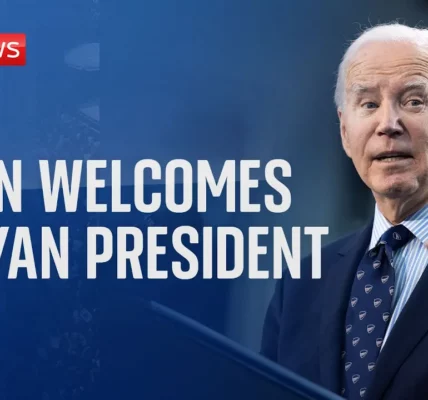Bridget Phillipson’s Vision for Labour: Change, Growth, and Education

In a recent discussion, Bridget Phillipson outlines Labour’s commitment to change, contrasting it with the Conservative government’s fiscal policies while emphasizing the importance of growth and investment in education. This article delves deeper into her promises, the economic context, and the potential impact on the UK.
Introduction
Bridget Phillipson, Labour’s spokesperson, presents a vision for the party that promises change and growth in the wake of years of Conservative governance. This vision is not merely about financial adjustments but also about creating a stable and progressive framework for the future of the UK. The discussion highlights the necessity for a clear economic strategy that prioritizes working families, education, and sustainable growth. With the backdrop of rising living costs and public dissatisfaction, Phillipson’s proposals aim to resonate with voters seeking tangible solutions.
Labour’s Commitment to Economic Change
Phillipson argues that the current economic situation demands a departure from the Tory fiscal rules that have shaped the UK’s financial landscape for over a decade. She emphasizes that Labour’s approach will not mirror the Conservatives, stating:
- Commitment to maintaining a stable economy.
- Focus on long-term growth through strategic investments.
- Engagement with trade unions and private sectors to foster job creation.
Phillipson’s perspective highlights the importance of not repeating past mistakes, particularly those seen under Liz Truss’s leadership, which she describes as “playing fast and loose with public finances.” This has led to increased burdens on working families, a situation Labour is determined to rectify.
The Path to Growth
According to Phillipson, growth is not an immediate result but a gradual process that requires patience and strategic planning. She outlines several key areas where Labour aims to stimulate growth:
1. Housing Development
Labour’s plan includes:
- Building more affordable homes to address the housing crisis.
- Investing in green energy projects to promote sustainability.
2. Education and Skills Investment
Education remains a cornerstone of Labour’s strategy. Phillipson asserts that:
- Investing in early childhood education will provide a strong foundation for future learning.
- Expanding apprenticeship programs to ensure that all individuals, regardless of age, have access to skills and training.
These educational initiatives are designed to offer every child the best chance to succeed, directly addressing concerns over educational standards and accessibility.
Fiscal Responsibility and Taxation
One of the critical discussions surrounding Labour’s manifesto has been the approach to taxation. Phillipson asserts that:
- There will be no increases in National Insurance, VAT, or income tax under a Labour government.
- The focus will be on fostering economic growth as a means to fund public services.
She emphasizes that the previous Conservative tax regime has resulted in high tax levels without adequate returns in public services, a narrative that resonates with many voters who feel overburdened.
Addressing Child Poverty
Phillipson highlights child poverty as a critical issue that Labour intends to tackle head-on. The party’s manifesto indicates a commitment to:
- Reducing child poverty through targeted policies.
- Implementing universal free breakfast clubs to support families during the cost-of-living crisis.
She recognizes the complexity of these issues, stating that while the Labour government will strive to address poverty, the economic stability is paramount to ensure that these initiatives are sustainable.
Labour’s Approach to Social Issues
In addition to economic policies, Phillipson addresses social issues, particularly concerning women’s rights and gender identity. She affirms:
- The importance of single-sex spaces to protect women’s rights.
- A commitment to ensuring that trans individuals receive appropriate care and support.
This nuanced approach aims to bridge gaps between differing viewpoints while maintaining a focus on safety and inclusivity.
Conclusion
Bridget Phillipson’s vision for Labour encapsulates a commitment to change, growth, and education while addressing the pressing challenges facing the UK today. Her focus on economic stability, education reform, and social issues presents a holistic approach to governance that aims to resonate with voters. As the election approaches, it is crucial for supporters to understand that their vote is pivotal in turning the tide after years of Conservative rule. To learn more about Labour’s proposals and to support the movement for change, visit our related articles on economic policies and education reform.
“`




